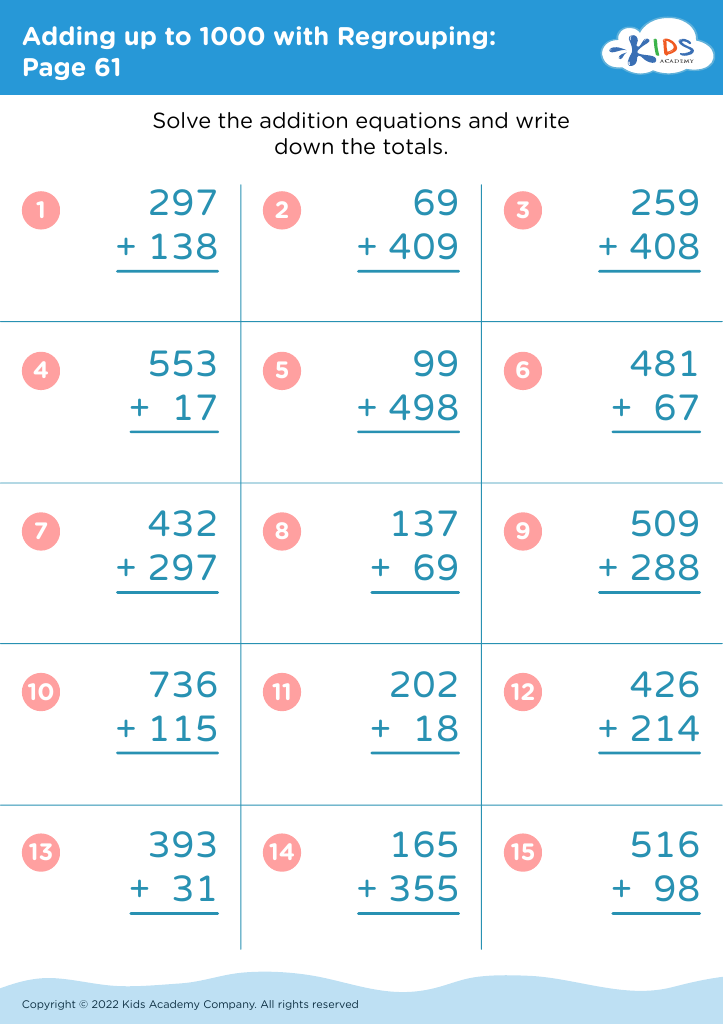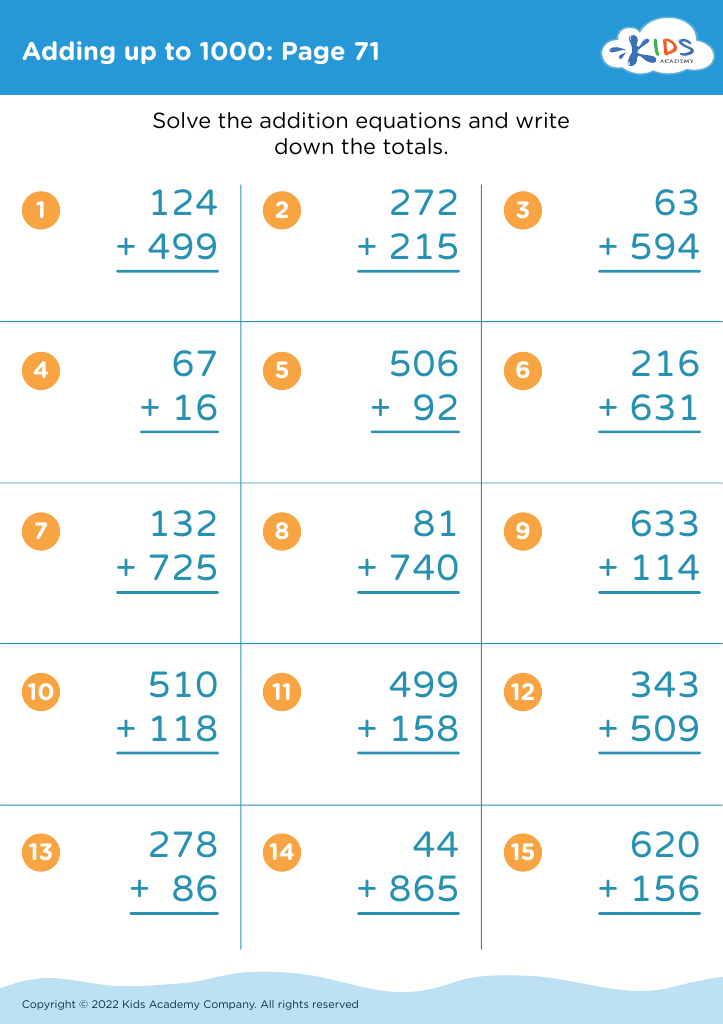Problem-solving abilities Adding up to 1000 Worksheets for Ages 5-8
5 filtered results
-
From - To
Unlock your child’s potential with our "Problem-Solving Abilities: Adding Up to 1000 Worksheets" designed specifically for ages 5-8. These engaging worksheets focus on enhancing critical thinking and logic skills through fun mathematical challenges. As children practice addition and develop their problem-solving abilities, they gain confidence in their mathematical understanding. Our user-friendly format includes colorful illustrations and progressive difficulties to cater to every learning stage. Foster a love for math while equipping your young learners with essential skills! Perfect for homes and classrooms alike, these worksheets are a valuable resource to support your child's journey towards mathematical proficiency.
Problem-solving abilities are crucial for children ages 5 to 8, and here's why parents and teachers should prioritize this skill.
At this developmental stage, children are naturally curious and eager to explore. Encouraging problem-solving enhances critical thinking, allowing them to analyze situations, recognize patterns, and develop strategies. This process not only fosters creativity but also instills a sense of accomplishment when they find solutions independently.
Moreover, problem-solving nurtures resilience. When children face challenges, they learn that perseverance and exploration can lead to success, which is an invaluable life skill. These abilities also contribute to improved academic performance; as students enhance their cognitive skills, they are better equipped to tackle math, reading, and science tasks.
Additionally, social interactions within peer group settings often involve collaborative problem-solving, which promotes teamwork and communication. Involvement in group activities helps children to appreciate diverse perspectives and strengthens emotional intelligence.
By focusing on problem-solving skills, parents and teachers are effectively preparing children for future academic challenges and everyday situations. This foundational competency not only supports academic growth but also equips children with essential life skills, fostering adaptability and innovation in an ever-changing world. Therefore, nurturing problem-solving abilities should be integral to early education.



















